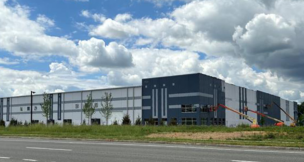Ashland fire protection firm CEO retires
Ashland-based VSC Fire & Security (VSC) President Tommy Clements has assumed the added role of CEO, following former CEO Mike Meehan’s retirement, the fire protection and security company announced in mid-January. Meehan retired on Dec. 31, 2022. He will continue to serve on the board of directors as non-executive chairman. “The past 43 years have […]
Exceeding expectations
In the greater Richmond region, local economic development authorities have been hard at work landing new business and securing expansions, and this year those efforts bore fruit, they say. In fact, 2022 has outpaced the past two decades, declares Jennifer Wakefield, the Greater Richmond Partnership’s president and CEO, as the region landed two “megaprojects” — […]
Kings Dominion to remain open year-round
Kings Dominion will expand to year-round operations beginning in January, the Doswell theme park announced Tuesday. The park will now be open an additional nine weekends, or 18 more days, in January, February and early March. Historically, Kings Dominion opens for weekends in the spring and starts daily operations around Memorial Day, continuing through Labor […]
Lutron Electronics to build $28.3M factory in Ashland
Pennsylvania-based Lutron Electronics will invest $28.3 million to build a 145,000-square-foot manufacturing plant in Ashland, creating 200 jobs, Gov. Glenn Youngkin announced Thursday. Lutron manufactures lighting controls, automated shading solutions, and intelligent lighting fixtures for residential and commercial applications. Lutron already has a sales office and training center in Ashland lo[...]
Hanover County business center sells for $41M
Baltimore-based Merritt Properties announced Tuesday it has purchased Crescent Business Center in Ashland from Crescent Business Center LC, a Thalhimer Realty Partners Inc. development, for $41.3 million. The Hanover County business center includes five industrial buildings with 262,256 square feet of space on 20 acres and are 100% occupied, including Trane U.S. Inc., Electronic Systems, […[...]
Owens & Minor receives $1.1B DOD contract
Mechanicsville-based Fortune 500 global health care logistics firm Owens & Minor Inc. has received a $1.125 billion contract modification to provide medical surgical supplies to the military and federal civilian agencies, the Department of Defense announced Wednesday. The award is for a second 30-month option period of a contract with three 30-month possible periods for […]
Va. ABC telework plan diverges from Youngkin mandate
Employees at the Virginia Alcohol Beverage Control Authority’s Mechanicsville headquarters will be returning to in-person work three days a week, not the four or five days a week that will be required of many state workers beginning July 5, following Gov. Glenn Youngkin’s telework order earlier this month. Virginia ABC CEO Travis Hill sent an […]
Owens & Minor acquires home health care company for $1.6B
Mechanicsville-based Fortune 500 health care logistics company Owens & Minor Inc. announced Tuesday that it had closed its acquisition of Indianapolis-based Apria Inc. for a cash consideration of $1.6 billion. Owens & Minor funded the purchase with a combination of debt and cash on hand. The company is combining Apria and its Byram Healthcare Centers […]
In the big leagues
Central Virginia continues to attract pharmaceutical companies, advanced manufacturing sites and distribution centers, with 2021 seeing several major deals from companies that will bring large footprints to the region. Richmond was the leader in the clubhouse, with the city occupying half of the spots on the region’s list of the 10 biggest deals of 2021, […]
Complicated history
Rochester, New York-based supermarket chain Wegmans Food Markets Inc. is building a $175 million distribution center and regional headquarters near the intersection of Sliding Hill and Ashcake roads in Hanover County. The 1.1 million-square-foot facility is expected to create roughly 700 jobs, making it one of the most significant economic development projects in county history. […]
Walgreens to establish $34.2M fulfillment center in Hanover
Walgreens will invest $34.2 million to establish a micro-fulfillment center in Hanover County, a project expected to create 249 jobs, Gov. Glenn Youngkin announced Friday. The 65,686-square-foot facility will be located at the 185,000-square-foot Atlee Station Logistics Center and will have automated machinery to allow for a flexible operating model. “The Walgreens micro-fulfillment center in [&[...]
SeaWorld makes $3.4B offer for Kings Dominion parent company
A reported $3.4 billion acquisition bid from Orlando-based SeaWorld Entertainment Inc. could result in Virginia’s two major theme parks being under the same ownership. SeaWorld, parent company of Busch Gardens Williamsburg, has made an unsolicited offer to acquire Ohio-based Cedar Fair Entertainment Co., which owns the Kings Dominion theme park in Hanover County’s Doswell area. [&helli[...]



















